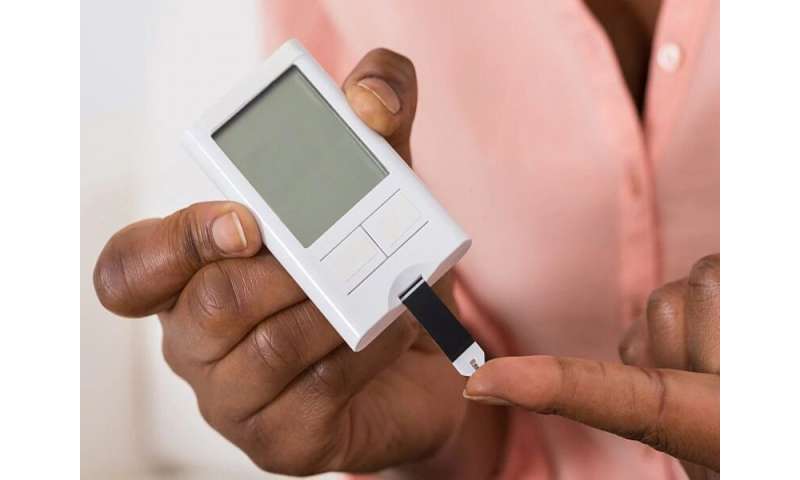
(HealthDay)—For adults with type 1 diabetes, glycemic control may be worse than previously thought, and rates of all complications increase with increasing hemoglobin A1c (HbA1c), according to a study published online Sept. 23 in Diabetes Care.
Jeremy H. Pettus, M.D., from the University of California San Diego, and colleagues used a U.S. electronic health record database to assess the burden of acute complications (severe hypoglycemia, diabetic ketoacidosis) and microvascular complications (neuropathy, nephropathy, retinopathy) among adults with type 1 diabetes. Results were stratified by age (18 to 25, 26 to 49, 50 to 64, and ≥65 years) and glycemic control (HbA1c <7, 7 to <9, and ≥9 percent).
The researchers identified 31,430 patients, of whom about 20 percent had HbA1c <7 percent. HbA1c levels were significantly lower in older patients compared with younger patients. The investigators observed higher annual incidences of severe hypoglycemia (4.2, 4.0, and 8.3 percent, respectively) and diabetic ketoacidosis (1.3, 2.8, and 15.8 percent, respectively) for patients with HbA1c <7, 7 to <9, and ≥9 percent. Patients with poor glycemic control also had a higher prevalence of neuropathy and nephropathy.
“These [real-world] data suggest that in adults with type 1 diabetes, glycemic control is worse than previously estimated and rates of both acute and chronic complications increase with increasing HbA1c,” the authors write.
Source: Read Full Article
